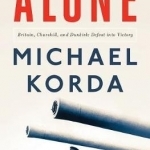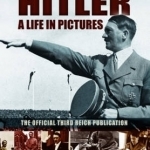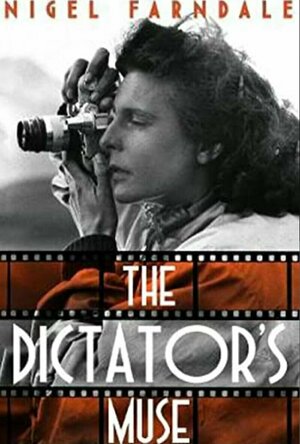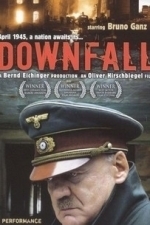
Alone: Britain, Churchill, and Dunkirk: Defeat into Victory
Book
In an absorbing work peopled with world leaders, generals, and ordinary citizens who fought on both...

From Exile to Washington: A Memoir of Leadership in the Twentieth Century
Book
In a life that has spanned nearly nine decades and has taken him across the world and back, W....
ClareR (6079 KP) rated The Dictator’s Muse in Books
Jan 10, 2023
Hitler is in power, and one of his most respected film makers, Leni Riefenstahl, has been tasked with filming the Berlin Olympics. She has to tread a fine line between the film-making she wants to create and that of the Nazi propaganda machine.
Meanwhile, back in England, Kit is training for the olympics whilst holding down a full time job and trying to impress his upper class girlfriend. He discovers he can get sponsorship through Oswald Mosley’s British Union of Fascists, even though he isn’t by any means a fascist.
Alun is a Welsh Communist, who has been tasked with infiltrating the Blackshirts.
Leni seems to be in a state of permanent dread, because even those who are staunch Nazis aren’t safe from being taken down by the SS.
There’s a lot going on in this book, and it sounds like it should be confusing. But it’s really not. It wasn’t fact, unputdownable.
There’s a great mystery threaded through this, introduced by a modern day character, an academic called Sigrun Meier.
Historical fiction AND a mystery - what’s not to like?!
RəX Regent (349 KP) rated Downfall (Der Untergang) (2004) in Movies
Feb 19, 2019
Told in a straight forward manner, we are given a portrait of not only Adolf Hitler himself, played perfectly by Bruno Ganz, who manages to humanize him without ever apologising for his heinous acts, but also those close to him. Shown through the young eyes of his final secretary, Traudl Junge (Alexandra Maria Lara), we are given a picture of what The Third Reich was to those who believed in it as well as what it had become for those who would suffer at it bloody hands.
Directed by Hirschbiegel to put us, the audience in the anterooms with these monsters, we are placed into a complex environment, edgy, atmospheric and most of all, real, as we witness noble acts of patriotism, conscience and pure, despicable horror, none less so that Magda Geobells, with the full consent of her husband, Joseph, first drugging, then murdering their six children as they slept, rather than “let them live in a world without national socialism.”
The only redeeming factors were their eventual suicides and in terms of the film, their first rate performances throughout this harrowing scene. Corinna Harfouch, who portrays Magda manages to portray this evil woman yet convey the emotion which was subdued deep beneath the surface. No small feat to allow such a fleeting glimpse of humanity during such and inhuman act.
But the same must be said Bruno Ganz, who manages to portray Hitler with such humanity; whilst showing us the true nature of his monstrosities, highlighting that the REAL monsters live among us and can seduce us at any time, any where, especially when we are vulnerable.
During one of the film’s early scenes, Hitler and Albert Speer (Heino Ferch), his Armaments Minister, discussing his vision for The Third Reich as he looks over a model of the new Germany which would be built after he won the war, a Germany without department stores, instead focusing on art, literature and culture.
Surely a noble goal, but as we all know, this cultural hub would have been built at an unacceptable cost, mainly with the blood of those who Hitler and his cohorts deemed to be inferior.
This is one of many clever methods used to convey a fair portrait of Hitler and The Third Reich. To demonstrate how bad they were, you first have to show impartiality, pointing out the good in what they do, play devil’s advocate as it were. Because whether we like it or not, evil motives are often built upon decent goals.
But as this film demonstrates, as Hitler shows his destine for anyone, even his own people, who will not give their lives for HIS vision of Germany, his Third Reich was being eaten away by a cancer of his own making, a Germany rotting from the very top.
Downfall is without a doubt one of the best World War 2 films which I have ever seen, delivering a compelling and immersive look behind the scenes of one of the most important defeats in modern history.
But being British and having to follow this with subtitles, which was great as watching this in its native German only adds to the experience, it can be a bit difficult to keep up with every plot machination, as we spend two and half hours reading about troop deployments, tactics and the philosophy of the Third Reich as we are presented with such atmospheric work, but if you can keep up with but the text and visuals, this is one hell of an education for those who do not know and an immersive masterpiece for those who follow WW2 history.

Hitler - A Life in Pictures
Book
This exceptional source is probably the best of the contemporary accounts of Hitler in power, albeit...

Stepan Bandera -- The Life & Afterlife of a Ukrainian Nationalist: Fascism, Genocide & Cult
Book
"The Life and Afterlife of a Ukrainian Nationalist" is the first comprehensive and scholarly...

My Two Italies
Book
The child of Italian immigrants and an award-winning scholar of Italian literature, Joseph Luzzi...

I Flew for the Fuhrer
Book
Heinz Knoke was one of the outstanding German fighter pilots of World War II and this vivid...

John W. Thompson: Psychiatrist in the Shadow of the Holocaust
Book
John W. Thompson: Psychiatrist in the Shadow of the Holocaust is the biography of a doctor whose...
Kirk Bage (1775 KP) rated Schindler's List (1993) in Movies
Jan 18, 2021 (Updated Feb 25, 2021)
This one speaks for itself in many ways. As an exploration of evil and the men behind the atrocities committed during the late 30s and early 40s by Nazi Germany it is indispensable. The role played by Ralph Fiennes is especially brave and resonant in reminding us of how ego and power can corrupt beyond the point of anything recognisably human. But it is in the moments of resilience, defiance and sacrifice by the survivors that we fully appreciate the depths of the human spirit. A career defining performance by both Liam Neeson and Sir Ben Kingsley makes this a breathtaking and heartbreaking spectacle in every brutally emotional scene.
I will never forget seeing this in the cinema on its initial release and experiencing the absolute silence as the credits rolled and everyone left the screen and into the night with their thoughts and reflections, simply stunned by its impact. It demonstrates the very best and the very worst of human action and inaction in one perfect movie. Never an easy watch under any circumstances, but one worth dissecting and appreciating for all its genius – the directing, acting, cinematography, music, editing, everything is as near perfect as a film can be.


